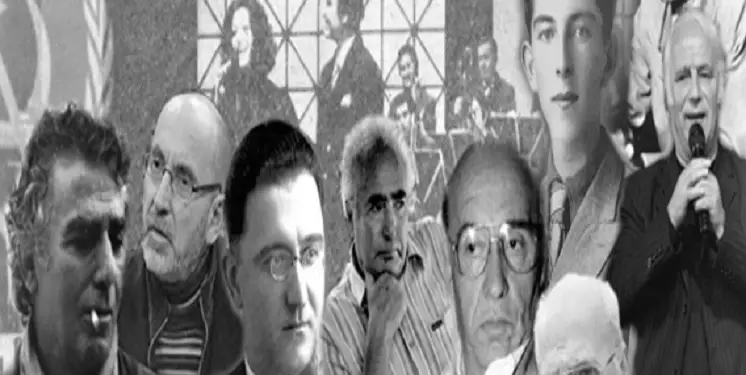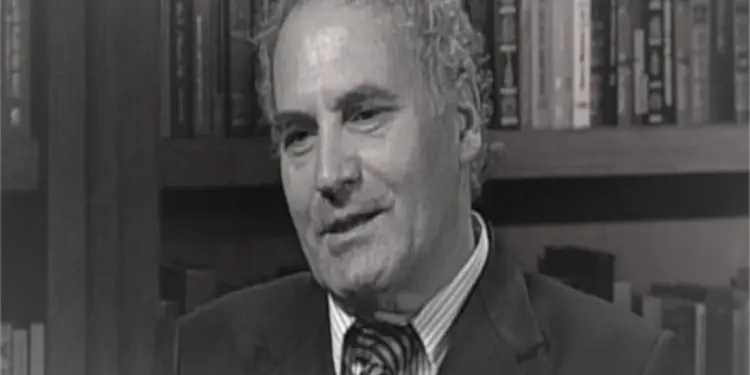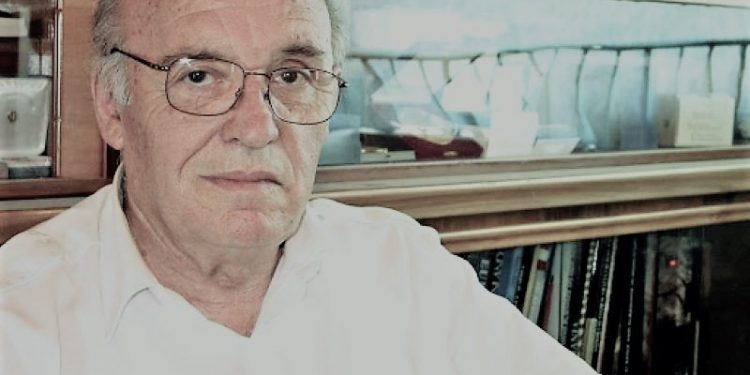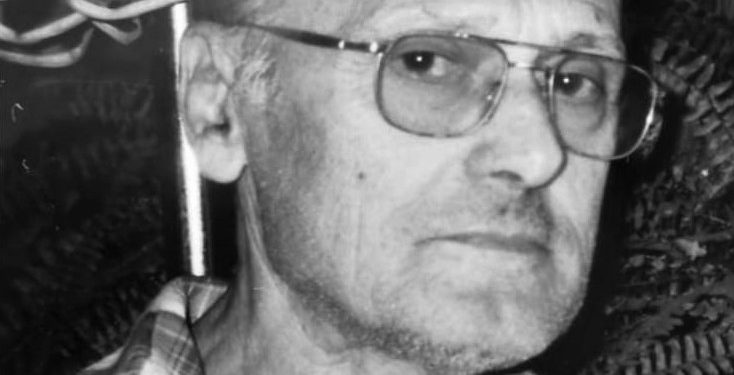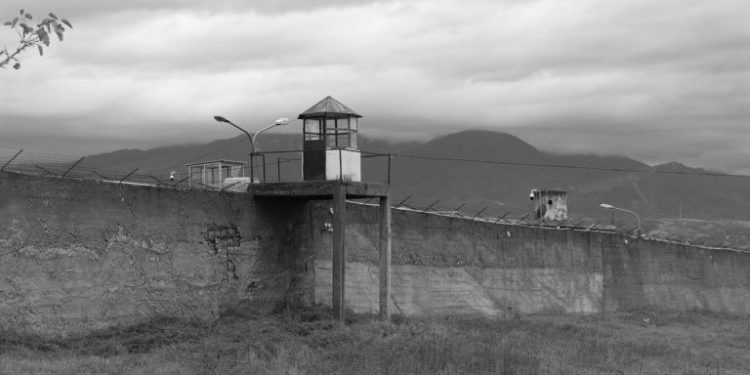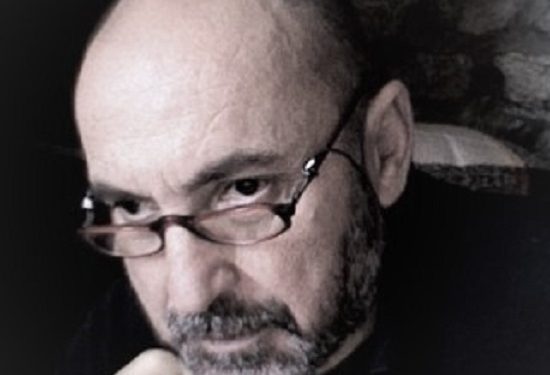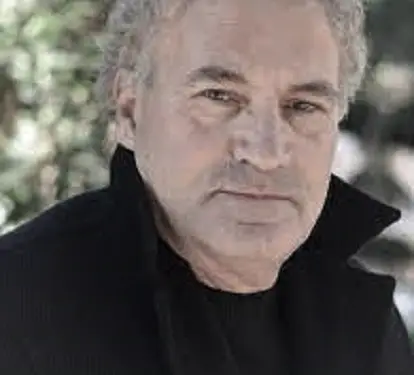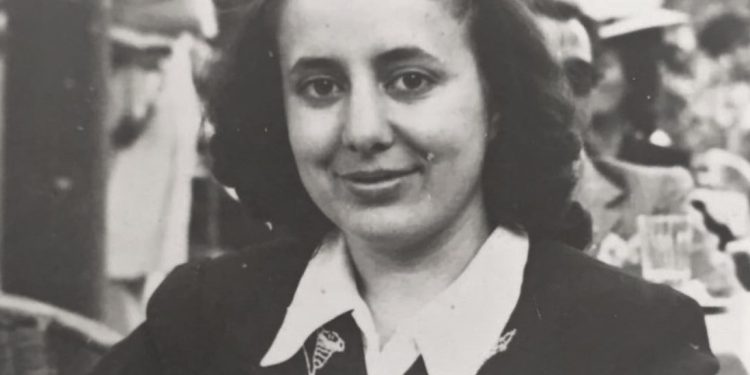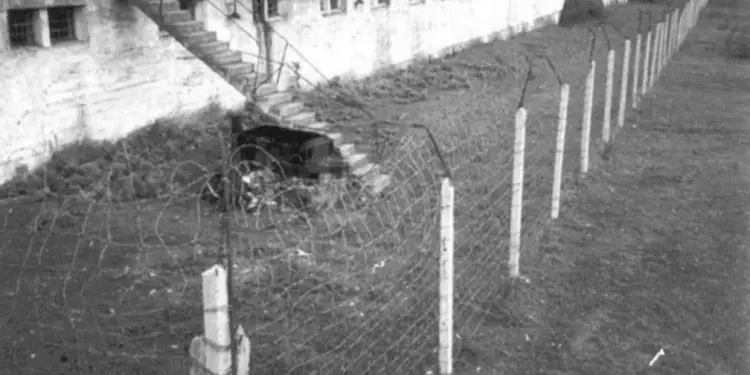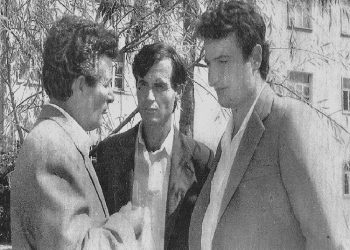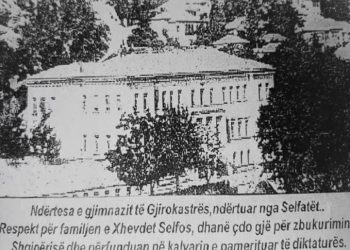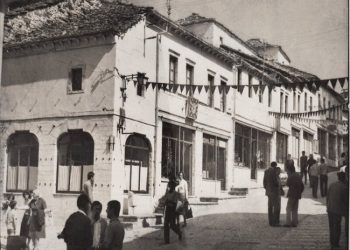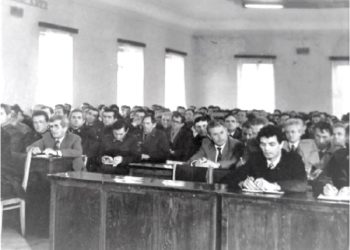From Visar Zhiti
Memorie.al/ There was a paradoxical, incredible and heavy time, not far away, even adjacent to ours as if behind a wall that has already collapsed, when in Albania writers and artists were punished, books, readers, dramas, song festivals were raised libraries, even the metaphor itself, although it seems impossible to arrest a literary figure, going as far as to sentence writers to graves. The reality in front and the columns of tradition were vandalized, everything that went against the rule of the winners after World War II, their utopia with a half-hearted doctrine, real socialism, that dictatorship that bled with blood to create the new order of the new man. And before universities were opened, prisons were opened. Albania was the smallest country in the communist empire with the largest dictatorship in Europe, where everything was tried: conspiracies of murderous silence, undoings, collective brainwashing, exiles, imprisonments, shootings, even the supreme creator, God himself, was banned, after the temples of beliefs and cults collapsed. Meanwhile, the dictatorship cultivated its writers, its artists and maintained them just like the police, factories or farms, while replacing God with itself and churches and mosques with party and executive committees.
In the end, permanent violence was exercised with intellectuals, not only with policemen, with propagandists, with writers and their works in the service of the ideocracy and the totalitarian system. The recognition of evil, its study now, the institution of memory is necessary, to know the past, our history and our truth, that is, ourselves as an individual and a collective, so that much can be transformed into experience and vision, with the aim so that dictatorships do not repeat themselves and the future becomes the present as soon as possible. The great contradictions, divisions, dissidence, martyrdoms, revolts, the lexicon of the resisters, up to and including the victims, not only deserve respect, but also serve as a lesson of the magnificent mechanism of counteraction against the monstrous machinery of violence and inhuman alienation. Let’s remember. We have been remembering wisely for 20 years, (re)educating our time.
The terrible winners…!
As soon as the victors came to power, after 1944, the existing theaters and cinemas were converted into courtrooms. On the stage of the National Theater, the jury was placed, not with actors, but with commissars and war commanders, in front of intellectuals, deputies, journalists and writers among them, patriots, etc., those who were opponents, but whom the system saw and treated as enemies to be killed. Enver Hoxha was sitting in the theater box, watching the trial and perhaps, while reaching for the monocle, he grabbed the revolver. On the loudspeakers outside in the street the trial could be heard as a roar, a new form of threat. Sentenced by firing squad: Col. Tromara, Fejzi Alizoti, Javer Hurshiti, Konstandin Kote, Hilmi Leka, Sejfulla Merlika, Ismail Golemi, Terenc Toçi, Zef Kadarja, Shyqri Borshi, Beqir Valteri, Bahri Omari, Dik Cami, Aqif Përmeti, Daut Çarçani, Gustav Mirdashi…!
With heavy imprisonment: Koço Kota, Vrioni… Cara, Leskoviku… Jakov Mile, Mihal Zallari, Lazer Radi… Gjergj Bubani, Libohova… etc., etc. Applause like the battery of the firing platoon. The murders continue: Dom Ndre Zadeja… The high intellectual Xhevat Korça decides to die in the Burrel prison with a hunger strike, the first strike in the communism here. Meanwhile, the poet Gjergj Fishta, described as “the last Homer”, and even proposed for the “Nobel” Prize, will destroy his grave and throw his remains into the river Drin. Because he had been an anti-Bolshevik and nationalist priest, he shouldn’t even be dead. Even the author of the first Albanian novel, Dom Ndoc Nikaj, was imprisoned at the age of 82 as an opponent of the regime and died in prison after 5 years. And the tragedian Et’hem Haxhiadem was poisoned a week before his release.
The greatness of endurance
However, “Albania that was oppressed” preserved its dignity, dared and stood up. The Postriba Uprising in 1946. The poet Martin Camaj, who was going to escape to Germany, was captured here, according to the testimony of the political prisoner poet Pano Taçi. Only 19 days was what the world calls the Hungarian Revolution of 1956, while the mountains of Albania would continue to stand with guns in the hands of the Gjomarks, Mirakajs, Bajraktars, Melyshs, Kols, Sulkurts, Merlikajs, Kazakhs, Lleshanaks and their battles would last 10 years. The streams also brought their blood. The author of the first book with criticism, the writer Mitrush Kuteli, founder of the modern Albanian story along with Ernest Koliq, was also taken to prison, but the latter escaped punishment, escaped to Italy, where he founded the university chair of language and literature in Rome. Albanian. But in the homeland his work was condemned, their reader was banned and punished. Yes, he also condemned the communist dictatorship by writing the wonderful drama “The Edges Move”, where as an anti-Orwellian, with whom he was the same age, he predicted, like no other writer, the fall of communism, which began its downward spiral almost when he prophesied it.
Even the first woman writer, Musine Kokalari, graduated in Rome, the first woman dissident in the entire communist empire, founder of a democratic party, was imprisoned, then exiled, worked as a construction worker and died alone, while the truck of the mortar, without funeral, threw him into the pit opened for him. The poet and researcher, professor Arshi Pipa, an open opponent, after he got out of prison, escaped with his poems, he had secretly written them on thin cigarette papers, the whole book was smaller than a matchbox. He published it in Rome in 1959. The first director of Albanian radio, the journalist and translator, Gjergj Bubani, was put in prison. Even the author of the first opera that was staged after the war, Preng Jakova, after his brother was killed as an opponent, and he was released at a young age, would remain with the mania of persecution all his life until he killed himself.
In prison were the great translators of Homer, Dante. Shakespeare never returned from America. The writer Kasëm Trebeshina, “the best-known of the unknowns” as described by his translator in German, Hans Joackim Lancksh, still has not been able to publish his work written in prisons and deportations. He fought as a partisan, but was separated from the dictatorship of the winners, he even left his studies halfway through the Soviet Union because he was disgusted by socialist realism and was sent back to his homeland as crazy. He opposes voting and asks to be given permission to leave Albania. Since madness was better than prison, Trebeshina was put in prison from time to time, but he did not submit and even today his anger with everyone has not gone away. He got tired of being Albanian and suddenly announced that he is Turkish. As I said, books were also punished here, even when they were translated literature by the system itself, they were banned according to conjunctures, for example, Remark, Hemingway, Shollohovi, Mopasani, even Go Mo Zho, etc., were taken out of circulation for ideological reasons and together with other books from Albanian literature, traditional or newly published by mistake and were taken to factories to be recycled into paper.
It happened that the workers stole some, I still keep such books in my library, they didn’t find them when I was arrested for metaphors, because their hermeticism, harmful ambiguity, because it conveyed secret contradictory ideas was not allowed. I was sentenced to 10 years in prison. The examiners of my poetry were two members of the League of Writers, who found that they pushed reality and often openly alluded against the party leadership and the socialist system.
Perspective and retrospective:
Helped by the distance of time and by the new visions that freedom gives you, I say now that Albanian writers and artists have been condemned in a general way: a sensitive part, as opponents, by putting them in prisons, banning their work and they were not allowed to write or were killed and the rest were locked in the method of socialist realism, creating propaganda literature, deceitful and flattering for the system, until they were alienated, into lucky victims, I call them. Mediocrity was thus an equally severe punishment, but for literature and culture, not for its privileged authors. Therefore, the heavenly Albanian poet, the wonderful lyricist Lasgush Poradeci decided not to write anymore. He wove the cursed poem of his own silence and to survive, he translated Goethe, Heine, Pushkin, but also Brecht. From the dead classics anything was allowed. Even an Albanian Jew, Robert Shvarc, dared and translated Brehti’s “March of the Calves” as written specifically for this: And the calves behind the drum/ they throw the cap/ the skin for the drum/ they give it themselves.
It is paradoxical and naive to believe that in a dictatorship, with a terrible lack of freedom, great works can be done. Totalitarian regimes ration freedom like daily food. They take away their freedom altogether and the selected followers, and these, give them more than their ration. Why? To write to make the dictatorship’s alibi to the outside world and to the future. There were writers in communism who took advantage of this condition and this is the main reason that even in the dictatorship they managed to create long-lasting works, which happened to be given to translate by nameless prisoners and the state offered them to be published in countries others as a political mask of the dictatorship, so that it would not look so bad. And the expenses were taken from the unpaid work of the prisoners in the infernal mines, where there were also their colleagues, but with a minus sign.
With the dissolution of the communist empire and the fall of its dictatorships, Albania discovered a different, subdued literature that came from the underground, but that seemed to have come out to wait in the future. Other literature was bringing its testimony and other artistic values and did not seek to drive away what was valuable, but to bring itself. Works came out of prisons, they came from the mud of exiles, they were taken out of drawers gnawed by time. The wonderful Albania has never had, even if it was illegal, dissidents, opponents, martyrs, not only victims, who were also made aware in prison.
Persecution inspired both ancient Greek tragedies and scriptures. We are shocked as deeply as the revolts by what the shot poets, so young, Trifon Xhagjika, who after reciting at his trial “The homeland is naked”, in his last words asked, like the altelier that he was, a ball, to fall to the Central Committee. The poet Bedri Blloshmi even before the shooting refused the request to become a collaborator, better mud, he was told, than with you. The last prisoner in the communist empire is our fellow sufferer Havzi Nela, he had written poems about Helsinki and human rights in prison, when outside the prison they didn’t know what these were. The political prisoner Astrit Delvina still has novels in the files of the Ministry of Internal Affairs, as well as his polemics against socialist realism in the investigator. But he died to look for them and in our country the dead are quickly forgotten. The monumental works of memory of Father Zef Pllumi and Amik Kasoruho, by Fatos Lubonja and Marsen Bungo, by Pjetër Arbnori and Agim Musta, Engjëll Çoba and Spartak Ngjela, Jorgo Bllaci and Pano Taçi, Uran Kalakulla and Zyhdi Morava were added to Albanian literature. Ahmet Kolgjini, Ylber Merdani and Leka Tasi, Frederik Rreshpja, Henrik Gjoka and Eugjen Mërlika, Gëzimët, Çela and Medolli, the Çoku brothers, (Esat, Bedri and Çaush), who were together in prison hand in hand.
The modern poems of former prisoner Zef Zorba and the comedies of another former prisoner Hekuran Zhiti emerged from the graves of silence. Even the great scientific work of Professor Kolec Topalli, but also the prayers of our saint Mother Teresa…! Names, names, names, names a shrill appeal. I have extracted 201 names of convicted writers and artists, 43 in occupied Kosovo, that is 1/5, while in Albania more than that were shot, even women like the scientist who had studied in Turin, Mrs. Sabiha Kasimati. In Kosovo, only 15 were killed, most of them in the 1999 war, we are talking about writers and artists, when one person is too many.
Meanwhile, a strange phenomenon is happening in Albania, if the sentence was inherited as an immovable property, for example, father and son, Lazër and Jozef Radi, sons of convicts are now telling about the prison, when they went to meet their parents, like the writer Agron Tufa, poet Luljeta Lleshanaku, researcher Leka Ndoja, Ron Kubati and Ornela Vorpsi across the sea in Italy. I also managed to get poetry out of prison, I published my own, believing that we are putting our stones in this dizzying mosaic, which is no longer underground. “Revival” is what the historian-writer Uran Butka calls it in one of his works, who together with Pjetër Pepa have excavated national history. But unfortunately, what was not allowed to be done by the interrupted lives will never come, our culture will have inside a big collective cemetery. Time will always remember that human time has been killed: In the Albania of the socialist dictatorship, the Albanians spent: 914,000 years in prison and 256,146 years of exile, i.e. more than 10 millennia of punishment. And the time after the shootings is immeasurable, llahtar with the sign of infinity. The only consolation is not repeating them.
MY LIST OF CONVICTS, WRITERS AND ARTISTS:
- Arbnori Pjeter – writer
- Ahmeti Sadri – painter, poet
- Ajazi Beqir – historian
- Ajazi Namik – filmmaker (son)
- Aliaj Kujtim – poet
- Aliko Tomorr – researcher
- Andoni Sotir – writer
- Araniti Mit’hat – writer, Albanian speaker
- Agolli Telat – circus artist
- Bego Medin – journalist, filmmaker
- Belishova Bardhyl – researcher
- Barberi Abdulla – prose writer
- Biba Eqerem – Albanian speaker
- Bishqemi Osman – writer
- Bllaci Jorgo – poet, Albanian speaker
- Blloshmi Bedri – researcher
- Boriçi Nuredin – writer
- Bubani Gjergj – journalist, Albanian speaker
- Bungo Makensen – writer
- Burimi Luan – poet
- Bushati Ahmet – prose writer
- Cangonji Abdullah – painter
- Chela Gëzim – storyteller
- Shepherd Ron – critic
- Choku Bedri – prose writer
- Choku Zeus – poet (brother)
- Čomo Drita – poet
- Culaj Caf Jonuz – prose writer
- Dashi Veniamin – translator
- Deda Guljelm – Albanian speaker, critic
- Delvina Astrit – writer
- Dema Mark – Albanian speaker, researcher
- Dine Dine – literary critic
- Dizdari Tahir – Albanian speaker, orientalist
- Donat Kurti – father, ethnographer, composer
- Dushi Kin – writer
- Dushi Mark – folklorist, linguist
- Dyrzi Inga Tarasova – researcher, designer
- Dyrzi Valer Tarasov – painter (son)
- Farka Ismail – engineer-scientist
- Filaj Luigj – musicologist
- Filipeu Fotaq – musician, composer
- Fishta Bashkim – prose writer
- Fishta Filip – researcher, critic
- Floqi Kristo – dramatist, Albanian speaker
- Frashëri Anton S. – writer
- Furxhi Dhimitër – variety actor
- Gardini Giacomo – father, Italian, researcher
- Gazulli Nikolle – linguist
- Gjeçi Pashko – Albanian speaker
- George Edison – painter
- Gjergji Kolec – writer
- Gjini Miho – theater critic
- Gjini Pjetër – poet, composer
- Gjoka Henrik – writer
- Gjolaj Konrad – father, writer
- Golemi Ahmet – writer
- Grebleshi Mustafa – writer
- Gruda Zef – composer
- Gumeni Daut – poet
- Haçi Beqir – poet
- Hakiu Nexhat – poet
- Hamiti Agim – writer
- Hamzaraj Ventigjar – writer
- Harapi Mark – father, writer, Albanian speaker
- Hasanaj Ibrahim – Bektashi poet
- Hasanaj Xhevdet – folklorist
- Hisku Halida – singer
- Hyseni Bajram – poet
- Ilia Frano (Dom) – folklorist
- Jakova Prenk – musician,
- Jakova Tuk – journalist
- Jubani Simon, dom – literature researcher
- Jero Minush – theater critic
- Kabashi Leon – father, iconographic painter
- Kaçaj Lluk – opera singer
- Kalakulla Uran – writer
- Karma John – father, folklorist
- Kaso Tanush – writer
- Kasoruho Amik – translator, writer
- Kati Vasil – writes memoirs
- Koçi Mandi – cinematographer
- Kodra Lame – poet, translator
- Kokoshi Kudret – poet, translator
- Kolgjini Ahmet – poet
- Koliqi Mikel – father, composer, cardinal
- Komnino Gjergj – poet
- Kostreci Uran – poet
- Kotani Niko – researcher
- Kote Nikola – translator
- Kuteli Mitrush – writer, Albanian speaker
- Kripa Reshat – writer
- Red Pirro – poet
- Lala Dhimitër – cinematographer
- Lamaj Fatmir – publicist
- Lamaj Klito – publicist
- Laze Halil – writer, journalist
- Leka Dhora – composer
- Leka Zef – composer
- Luarasi Mihallaq – director
- Lubonja Fatos – writer
- Lubonja Liri – author of memoirs (mother)
- Lubonja Todi – author of memoirs (his father)
- Luci Namik – scientific researcher from Kosovo
- Maluka Luan – director
- Marko Petro – writer
- Marko Jamarbër – poet (son)
- Martini Viktor – prose writer
- Mazrek Filip – father, musicologist
- Mazreku Nikolle (Dom) – researcher
- Medicina Maria (Dvorani) – writer
- Medolli Gëzim – poet
- Mihilli Xhavit – pedagogue
- Merdani Sherif – singer
- Merdani Ylber – poet
- Merlika Elena Gjika – researcher
- Merlika Eugjen – writer (son)
- Meshkalla Pjeter, at- poet, theologian
- Miçaço Dionis – publicist
- Mirakaj Lek – journalist
- Mishtari Loni – writer
- Morava Zydi – writer
- Moreka Llazar – composer
- Mulleti Tanush – journalist
- Murati Kujtim – poet
- Musta Agim – historian
- Myftari Bedri – writer
- Mufti Luan – storyteller, essayist
- Mufti Mehmet – writer
- Namik Ajazi – cinematographer
- Ndoja Mark – poet, Albanian speaker
- Njjela Spartak – prose writer
- Nika Ndoc – writer
- Dakaj Nikolle – Albanian speaker, poet
- Ogranaja Zhaneta – poet
- Oseku Ali – painter
- Paçrami Fadil – playwright
- Palaj Bernardin – father, writer
- Peci Gaqo – prose writer
- Peçi Gjergj – poet
- Pengili Natalia Arkadij Rozengolc – translator
- Pervizi Lek – painter
- Peshpia Gëzim – prose writer
- Perdoda Ernest – poet
- Pipa Arshi – writer
- Plumi Zef – father, researcher, writer
- Priest Leonard – researcher, psychologist
- Prodani Medi -guitarist
- Radi Lazer – writer, translator
- Radi Jozef – poet (son)
- Rafaeli Stavri – opera singer
- Rakipaj Maksim – translator
- Ratkoceri Gani Demir – prose writer
- Repishti Sami – essayist, historian
- Reshpja Frederik – poet
- Resuli Kaplan – writer
- Riza Selman – linguist, Albanianologist
- Rrapaj Mero Fatos – folklorist
- Sadiku Hito – poet (secretary of Faik Konica)
- Selfo Halit – Albanian speaker
- Shehu Bashkim – writer
- Shehu Mehmet (Tepelena) – researcher
- Sheldija Gjush – folklorist
- Shllaku Gjon – Albanian speaker
- Simoni Zef – father, researcher
- Sirdani Marin – father, historian, researcher
- Skanjeti Marin – writer
- Skura Gani – poet
- Sokoli Ramadan – musicologist, folklorist
- Spahiu Islam – Albanian speaker
- Starova Dylber – musician
- Viktor Stratobërdha – director, cinematographer
- Taçi Anastasia – bookseller, researcher
- Taçi Pano – poet
- Tase Leka – instrumentalist, writer
- Tasi Akile – journalist
- Tasi Koço – linguist
- Tasi Napolon – Albanian speaker
- Titani Gjergj – poet
- Toto Leka – playwright
- Trebeshina Kasem – writer
- Vako Milto – choir conductor
- Vaqari Selman – writer
- Varfi Andrea – poet
- Vasija Ndoc – writer
- Velaj Petrit – writer
- Velo Maks – architect, writer
- Volaj Viktor – father, researcher
- Vrioni Hazis – Albanian speaker
- Vrioni Yusuf – translator
- Volcano Robert – translator, critic
- Xhaferri Astrit – storyteller.
- Xhuvani Visaroin – theologian, linguist
- Zallari Mihal – publicist, Albanian speaker
- Zeka Aleksandër – poet
- Zezaj Gjovalin – researcher
- Zhiti Hekuran – playwright, actor
- Zhiti Visar – writer (son)
- Zorba Terezina Pali – actress
- Zorba Zef – poet, director (husband)
From Lega to Pristina:
- Abazi Hajdin (Lum Haxhiu) – poet, publicist
- Avdyli Merxhan – poet
- Beqiri Azem – poet
- Brovina Flora – poet
- Buja Ramë – publicist
- Bytyçi Sali – poet, literature researcher
- Ceraja Jakup – poet
- Čuni Martin – poet, publicist
- Demaçi Adem – writer
- Demolli Arif – writer
- Dervishi Teki – writer
- Fetiu Sefedin – literary critic, prose writer
- Gashi Adem – poet
- Gërvalla Zeqir – poet
- Hajrizi Mehmet – publicist
- Halimi Bedri – poet
- Hasani Nait – poet
- Haxhaj Ardian – poet, prose writer
- Haziri Ramadan – writer
- Hyseni Hydajet – poet, publicist
- Kelmendi Ramiz – writer
- Kosumi Bajram – poet and publicist
- Krasniqi Jakup – publicist (historian)
- Kryeziu Ekrem – playwright
- Kurti Albin – journalist
- Matoshi Halil – poet
- Musliu Beqir – poet, writer
- Novosella Selatin – publicist
- Nura Xajë – poet
- Radagoshi Kadrush – writer
- Ramadani Sali – poet, publicist
- Rogova Muhamet – lecturer, publicist
- Riza Selman – linguist, Albanian analog*
- Rrustemi Sabit – poet
- Sadiku Rrahim – poet, journalist
- Selmanaj Rasim – poet
- Shatri Xhafer – publicist (then fugitive)
- Sinani Ramadan – poet
- Smajli Rexhep – academic
- Syla Ismail – poet
- Ukaj Vezir – poet
- Vinca Agim – poet, researcher.
- Zyberaj Bedri – poet, publicist
MONUMENTAL CEMETERY
In Albanian literature: shot, hanged, died in torture, without graves:
- Blloshmi Vilson – poet, translator, shot
- Bonati Jul – gentleman, translator, shot
- Çela Beqir – poet, shot
- Chika Nebil – journalist, shot
- Çurçia Gasper – musician, shot (accusation: forgery of money)
- Chuni Mark – designer, shot
- Deda Simon – Albanian speaker, died in prison
- Dracini Qemal – critic, died in prison
- Dushi Mark – folklorist, archaeologist
- Fallo Dhimitër – translator, shot
- Haxhiademi Et’hem – playwright, died in prison
- Gazulli Nikolle – father, linguist, dead in the investigator
- Gruda Peter – actor, died in the camp
- Ivanaj Mirash – poet, researcher, Minister of Education, died in prison
- Idrizi Sulejman – linguist, died in prison
- Janina Myqerem – translator, died in prison
- Fundo Zai – poet, philosopher, massacred
- Kasimati Sabiha – zoological scientist, shot
- Kokalari Musine – writer, died in exile, after prison.
- Kokalari Muntazi – publisher, shot (Musine’s brother)
- Kokalari Vesim – publisher, shot (Musine’s brother)
- Kokalari Syrja – teacher, shot (cousin)
- Kokalari Salim – researcher, shot
- Kokomani Fadil – journalist, shot
- Koprencka Xhelal – poet, shot
- Leka Genc – poet, shot
- Korça Xhevat – researcher, historian, dies on hunger strike in prison
- Lezho Vangjel – journalist, shot
- Mala Zef – library director, died in prison
- Nela Havzi – poet, addict
- Omari Gramoz – officer, accordionist, shot
- Panariti Qani – translator, shot
- Pantalia Gjon – director, dead in the investigator
- Peshkpia Manush – poet, shot
- Pipa Myzafer – journalist, critic, dead in the investigator
- Prennushi Vinçenc – poet, died in torture
- Shantoja Lazër – (Dom) writer, shot
- Toçi Terenc – journalist, historian, shot
- Tushi Vangjush – painter, died in prison
- Xhagjika Trifon – poet, shot
- Shllaku Gjon – father, critic, journalist, shot
- Sirdani Aleksandër – folklorist, killed
- Stefa Kristaq – researcher, shot
- Tomorri Ali – poet, shot
- Toto Selaudin – scientist, MP, shot
- Venetiku Kiço – conductor, died in prison
- Venetiku Krisanthi – photographer, died in prison
- Zadeja Ndre – (Dom) playwright, poet, shot
- Zdrava Dane – academic (opens the first cinema in Berat), died in prison
- Zhiti Maksut – researcher, poet, died with torture in the interrogator
From Pristina:
- Agani Fehmi – sociologist, philosopher
- Berisha Latif – poet, researcher, killed, 1999
- Bicurri Esat – artist, singer, killed, 1999
- Elmazi Rexhep – poet, killed after prison
- Graiçevci Fazli – poet, tortured to death by UDB-1964
- Çaushi Bardhyl – lawyer, prof. of Roman law, killed
- Gërvalla Jusuf – writer, killed
- Hadri Enver – poet, publicist, killed, 1990
- Hoti Ukshin Hoti – political scientist, philosopher (disappeared)
- Konjusha Selman – poet, murdered, 1999
- Mustafa Xhemail – publicist, literary critic
- Ramadani Agim – poet, painter
- Sulejmani Gursel – painter, fallen in the war
- Topalli Enver – poet, publicist, killed in Dubrava prison, 1999
- Zeka Kadri – publicist, killed. (Courtesy- R.D.). Memorie.al




